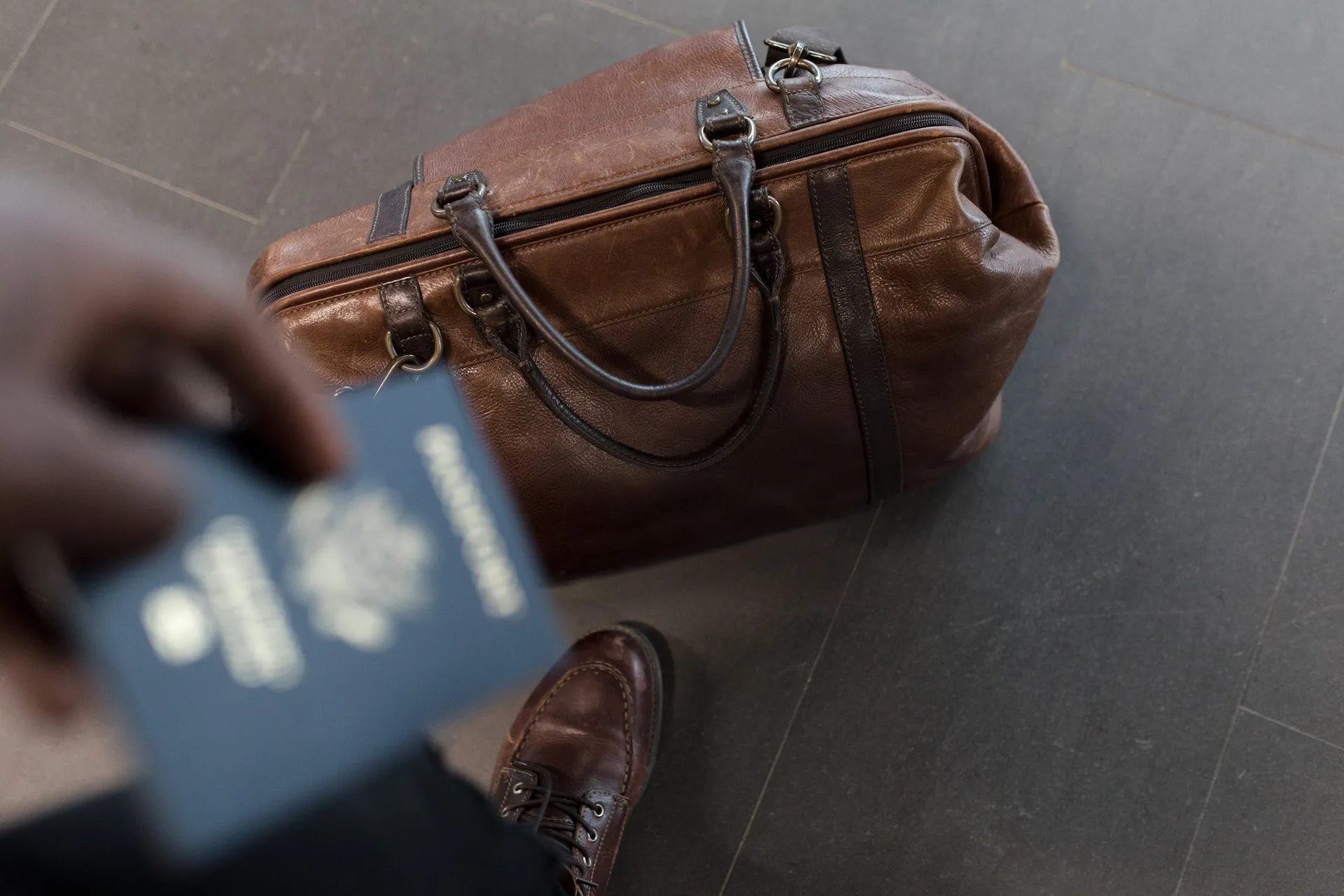Irish Residency
If you are thinking of moving to Ireland permanently, our immigration consultants can help. Find out more about how to apply for Permanent Residency (PR) in Ireland.
For expert legal advice and assistance with your application, call us today on +44 (0)333 414 9244 or +353 (0) 61 518 025.
Read our 1001 reviews
Request a call back from our immigration experts
Benefits of Choosing IAS‘ Ireland Immigration Lawyers
When it comes to obtaining an Ireland visa or permit, IAS Ireland immigration lawyers are well-equipped to help you.
With IAS’ track record of successfully helping clients visit or immigrate to Ireland successfully, we can help you achieve your goal.
Our dedicated immigration lawyers provide our services through a comprehensive and personalised approach. With IAS, you enjoy:

Compassionate support from an experienced immigration lawyer dedicated to your success



Support in gathering supporting documents and completing a high-quality application.



Confidence that your case is being handled by an experienced team.



In-house document checks done by lawyers who are well-versed in Ireland immigration matters.
Services we Provide
Become a permanent resident in Ireland
In order to be granted long term residency in Ireland, you need to have been living in Ireland for at least 5 years (60 months). You also generally need to have held a Work permit during this period, or to be a qualifying family member of an Irish permanent residence holder.
If you are successfully granted permanent residency status, you can generally then live and work in Ireland for an additional 5 years. You also gain access to a number of other benefits, such as a path to Irish naturalisation.
Eligibility requirements for permanent residency in Ireland
There are a number of eligibility criteria which you will need to satisfy in order to obtain Irish permanent residence. These are generally as follows:
- You have legally resided in Ireland for at least 60 months, and have either Stamps 1 or 4 in your passport or valid IRP cards for the duration of this period
- You have held Work permits during this period (known also as ‘green cards’)
- You have not been an undue burden on Ireland (i.e. have not been receiving social welfare payments)
- You are deemed to be of good character (if you have gained a criminal record while in Ireland, for example, this may impact your eligibility for permanent residence)
- You have abided by the rules and restrictions of your previous Work permits
- You are legally residing in Ireland and are employed at the time of your application (note that self-employed individuals are not eligible for this route)
You will need to satisfy all of the above criteria in order to be eligible.
If you are the spouse or dependant of someone with long term Irish residency, you can also obtain Irish permanent residence through this route. In order to be eligible, you will generally need to satisfy the following criteria:
- You have also resided legally in Ireland for at least 60 months (as a spouse or dependant)
- You are deemed to be of good character (i.e., do not have a criminal record, in most cases)
- You have abided by the conditions of your immigration status in Ireland
- You are legally residing in Ireland when you submit your application
- Your spouse must still hold their long term residency permission at the point when you submit your own application
If you are successful, you will be granted either a Stamp 1G or a Stamp 3 permission. This will depend on the Work permit originally held by your sponsoring spouse. However, note that in the case of Stamp 3 permission, you will not be eligible to work in Ireland.
Conditions for obtaining permanent residency in Ireland
In order to qualify for Irish permanent residence, you will generally need to have lived and worked in Ireland for at least 5 years. You will also generally need to have maintained a clean criminal record and avoided claiming state welfare benefits during your time in the country.
However, it is worth noting that applications are considered on an individual basis and final decisions are at the discretion of the Irish authorities.
Required Documents for Permanent Residency Application
As part of your application for Irish permanent residency, you will need to submit a number of documents. These are generally as follows:
- Completed application form (if it is not fully completed, it may be returned to you)
- Colour copies of your past and current passport/IRP cards (all your immigration stamps must be shown)
- Copy of your employment contract/communication from your employer, which shows the details of your employment (including start date)
- Colour copies of all Work permits
Proof of continuous residence in Ireland (e.g. tenancy agreements, bank statements, medical letters, etc.)
Can I get permanent residency if I have an employment permit?
If you hold an employment permit and you have been working and living in Ireland for a certain qualifying period of time, you most likely are eligible to apply for permanent residency.
If you hold the General Employment Permit, you must have lived in Ireland for at least 5 years to be able to apply for permanent residency. If, however, you came to Ireland under the Critical Skills Employment Permit, you can submit your application after just 2 years. That is why this type of employment permit to Ireland is highly sought-after.
Unfortunately, not all types of Irish work permits qualify for permanent residence. For example, if you have been living in Ireland on a Working Holiday Visa, the time you spend in the country with this permit does not count towards reckonable residence.
Keep in mind that to be able to obtain the status of an Irish permanent resident, you have to be employed at the time of submitting your application and you have to be able to prove that you are of good moral character.
Applying for PR in Ireland if you are a family member of an Irish permanent resident?
If you came to Ireland as a spouse or dependent of an Irish permanent resident, you might be eligible to apply for your own permanent residence permit after living in the country for at least 5 years.
Keep in mind that at the time of you submitting your application your family member must have already been granted their permanent residency on a Stamp 4. If they are currently waiting for their permanent residency application to be processed, you will not be able to apply. Similarly, if they hold Irish citizenship rather than Stamp 4 residency, this route is not the right one for you.
To prove your eligibility for permanent residency, you will have to prove that you have been granted Stamp 1 or Stamp 3. It is worth noting that even if you are granted long term residency in Ireland through this route, you will not be exempt from having to obtain an employment permit to work in Ireland.
Application process for permanent residency in Ireland
The application can for Irish permanent residency be submitted by post, through sending the ‘Application for permission to remain in the State on Long Term Residency’ form to the following address:
Long Term Residence Section
Unit C – Domestic Residence and Permissions Division
Immigration Service Delivery
Department of Justice
13-14 Burgh Quay
Dublin 2, DO2 XK70
Ireland
Note that, if the form is not completed, it will not be processed, and will instead be returned to you.
In the event that your application is successful, you will be informed by post. You will then be required to pay a €500 fee within 28 days of the date given on your letter. Next, once your payment has been processed, you will receive a permission letter, at which point you will need to register your permission online and pay a registration fee (in addition to the original €500).


Fees for Long Term Residency in Ireland
If you successfully obtain Irish permanent residence, you will need to pay a fee of €300 . This will need to be paid within 28 days of the date given on your letter and can be paid online. In the event that the fee is not paid within 28 days, your application will be closed.
Processing time of Irish permanent residency applications
The processing time of applications for permanent residency in Ireland varies depending on the complexity of each case. Nevertheless, most applications are processed within 6 to 8 months. If you forget to include some of the required documents, you will have to wait longer.
If you have not yet lived in Ireland for 5 years or more, you should refrain from submitting your application as it will automatically be rejected. Other possible reasons for the rejection of your application include:
- You are in Ireland on a Student Visa
- You are a citizen of an EU/EEA country
- You are not employed at the time of submitting our application
- You are in Ireland on a Business Visa.
Keep in mind, however, that applications are reviewed on a case by case basis so you might be refused permanent residency in Ireland for other reasons too. To maximise the chances of a positive outcome, hire one of our immigration consultants.
Types of Stamps for Long Term Residency
In order to obtain Irish permanent residency, you need to have at least 5 years worth of eligible stamps. However, not all stamps count towards this 5 year minimum. Specifically, only Stamps 1 and 4 count towards the 60 month requirement.
Stamp 1s for a valid Work permit or Critical Skills permit are eligible. They are issued by the Department of Enterprise, Trade and Employment.
Stamp 4s for a valid green card/Critical Skills Employment permit are also eligible. These are also issued by the Department of Enterprise, Trade and Employment.
Renewal Process for Long Term Residency
To renew your Long Term Residency status, you should attend an appointment at your local immigration office. At this appointment, you will be expected to provide evidence of having continuously worked and resided in Ireland over the last 5 years.
You will also need to submit a new ‘Application for permission to remain in the State on Long Term Residency’, after which your ongoing eligibility for Irish permanent residence will be assessed.
What happens if my Ireland PR application is refused?
In the event that your application is refused, you will be sent a letter detailing the reasons for that decision. You will not be able to appeal the decision. However, you can submit a new application. You may also be able to return to your previous immigration permission (assuming that you still satisfy the criteria for that status and have not breached any of its conditions). You can return to your old permission by attending an appointment at your local immigration office or, if your previous status has now expired, through writing to Immigration Service Delivery and requesting an extension.
If you choose to submit a new application, you will need to make sure you address the reasons for the original refusal. At IAS, we can help maximise your chances of a successful re-application, helping you to address the issues with your original application. Contact us today on +44 (0)333 414 9244 to learn more about our full range of services.
What are the benefits of having PR in Ireland?
Irish permanent residency offers a number of appealing benefits. For one, you will be able to live and work in Ireland for another 5 years without needing to obtain further Work permits. Additionally, if you have a spouse or dependant who has also lived in Ireland for at least 5 years, they may also be eligible to obtain permanent residency.
You will also be eligible for subsidised access to Ireland’s health system, EU travel benefits, cheaper university tuition, and welfare benefits. As such, permanent residence is a popular route for those who have been living and working in the country for a sufficient period of time.
Irish permanent residency also opens up a route to Irish citizenship after 5 years of permanent residency status, another popular benefit.
How can IAS help with PR in Ireland?
IAS has the leading immigration consultants in Ireland and the UK. We have a team of highly experienced immigration team who have helped many clients become permanent residents in Ireland.
Looking for an immigration lawyer? Hiring our team of immigration consultants ensures your application has been completed to the highest standards and that you submitted all the necessary documents. Your advisor will guide you through the application process from the very beginning until the very end, making sure you understand everything.
Your expert will approach your case with professionalism and dedication to help you achieve your desired result. Thanks to their help, you will be able to immigrate to Ireland permanently.
Call us today on +44 (0)333 414 9244 to find out more about how our experts can help.
Table of Contents
Table of Contents will appear here.Legal Disclaimer
The information provided is for general informational purposes only and does not constitute legal advice. While we make every effort to ensure accuracy, the law may change, and the information may not reflect the most current legal developments. No warranty is given regarding the accuracy or completeness of the information, and we do not accept liability in such cases. We recommend consulting with a qualified lawyer at Immigration Advice Service before making any decisions based on the content provided.
Frequently Asked Questions
Stamp 4 indicates that you have the right to live in Ireland for a certain period of time and work there without having to obtain an employment permit. If you are in Ireland with Stamp 4, you can also start and run your own business.
Stamp 4 is granted to, for example, those who have lived in Ireland for at least 5 years, those who are coming to join family members who are an Irish or EU/EEA citizens, and those who are living in Ireland with refugee status.
After you have been living in Ireland as a permanent resident for at least five years, you might be eligible to apply for Irish citizenship. If you are married to an Irish citizen, you might be able to submit your application after just 3 years of reckonable residence.
Not all visas to Ireland count as reckonable residence. The ones that do are:
To prove your eligibility for Irish citizenship, you will have to prove the length of your residency in Ireland by showing passport pages with your immigration permission stamps.
Even though Ireland is in the EU, it is not part of the Schengen Area. It is a region in Europe where citizens of certain countries can travel and move around without any restrictions or permits.
That means that if you want to travel to EU member states, you have to go through passport controls. That is why, if you are a non-EEA national living in Ireland as a permanent resident, you still have to apply for a Schengen Visa.
Once you obtain the visa and travel to one Schengen country, you will be able to visit other Schengen countries as well and travel between them freely. There are no border checks at internal borders of the Schengen area, only at external ones.
How long you will have to wait to hear a decision regarding your permanent residency application depends on how complex your case is. On average, however, applications are processed within 6 to 8 weeks. The failure to submit some of the required evidence might lead to delays.
To avoid having to wait longer, hire one of our immigration experts. They will review your application before you submit it to make sure you included all the necessary information and supporting documents.
Generally, no, you will not be able to work in the UK if you have Irish permanent residence.
However, note that Irish citizens are eligible to work in the UK without a visa. In order to work in the UK, then, you will need to obtain either Irish citizenship or a UK Work visa.
Generally, if you live outside of Ireland for more than 2 consecutive years, you can lose your permanent residence status.
Note that, if you choose to permanently leave the country, you are expected to return your Unlimited Work permit, at which point it will no longer be valid.
You will also need to reside and work in the country when you apply for Irish permanent residency (for an employer, not in a self-employed capacity). Thus, if you have already left Ireland and have lost residency status in the country, you will need to apply for a new Residence permit in order to enter the country.
Stamps 1 and 4 count towards Long Term residency. If you have spent time in Ireland under other stamps, these will not count towards your 5-year residency minimum.


What our clients are saying
How our UK Immigration Lawyers can help
At the Immigration Advice Service our lawyers specialise in a wide range of UK visas, nationality and asylum applications and have represented clients in various successful complex and high-profile cases.















